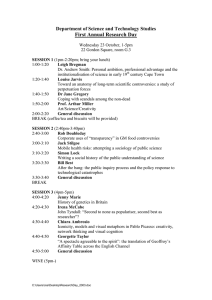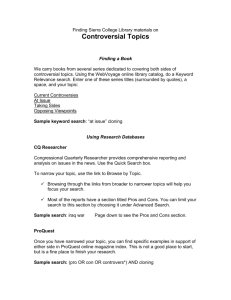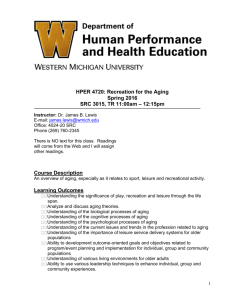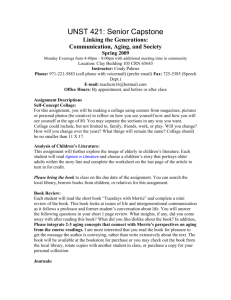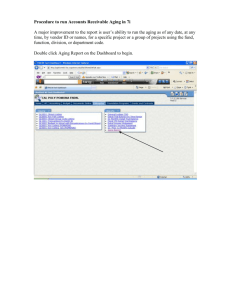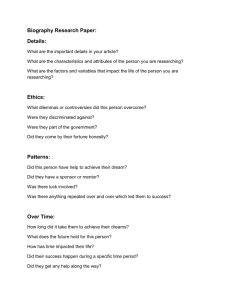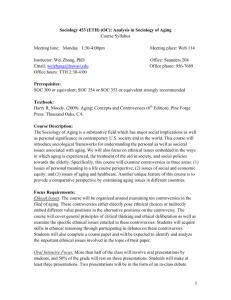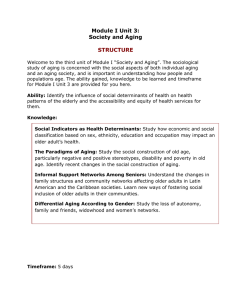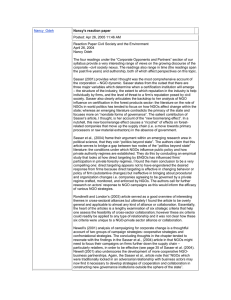SOCI 319: Aging & Society
advertisement
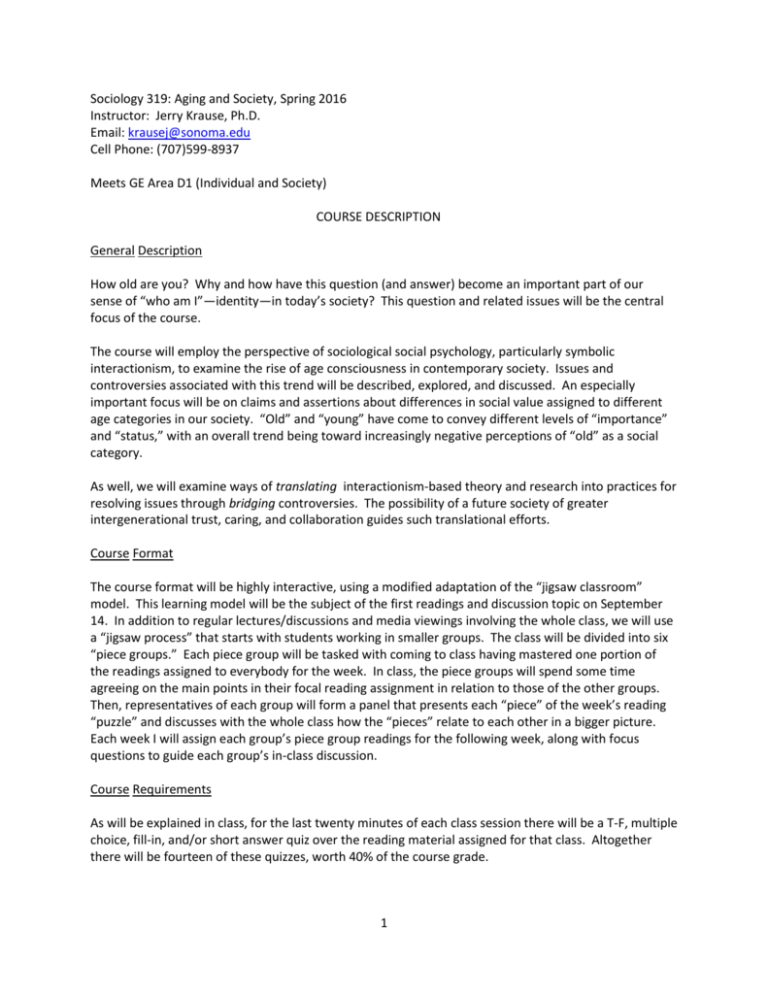
Sociology 319: Aging and Society, Spring 2016 Instructor: Jerry Krause, Ph.D. Email: krausej@sonoma.edu Cell Phone: (707)599-8937 Meets GE Area D1 (Individual and Society) COURSE DESCRIPTION General Description How old are you? Why and how have this question (and answer) become an important part of our sense of “who am I”—identity—in today’s society? This question and related issues will be the central focus of the course. The course will employ the perspective of sociological social psychology, particularly symbolic interactionism, to examine the rise of age consciousness in contemporary society. Issues and controversies associated with this trend will be described, explored, and discussed. An especially important focus will be on claims and assertions about differences in social value assigned to different age categories in our society. “Old” and “young” have come to convey different levels of “importance” and “status,” with an overall trend being toward increasingly negative perceptions of “old” as a social category. As well, we will examine ways of translating interactionism-based theory and research into practices for resolving issues through bridging controversies. The possibility of a future society of greater intergenerational trust, caring, and collaboration guides such translational efforts. Course Format The course format will be highly interactive, using a modified adaptation of the “jigsaw classroom” model. This learning model will be the subject of the first readings and discussion topic on September 14. In addition to regular lectures/discussions and media viewings involving the whole class, we will use a “jigsaw process” that starts with students working in smaller groups. The class will be divided into six “piece groups.” Each piece group will be tasked with coming to class having mastered one portion of the readings assigned to everybody for the week. In class, the piece groups will spend some time agreeing on the main points in their focal reading assignment in relation to those of the other groups. Then, representatives of each group will form a panel that presents each “piece” of the week’s reading “puzzle” and discusses with the whole class how the “pieces” relate to each other in a bigger picture. Each week I will assign each group’s piece group readings for the following week, along with focus questions to guide each group’s in-class discussion. Course Requirements As will be explained in class, for the last twenty minutes of each class session there will be a T-F, multiple choice, fill-in, and/or short answer quiz over the reading material assigned for that class. Altogether there will be fourteen of these quizzes, worth 40% of the course grade. 1 Given the highly interactive format of the course, attendance for each entire class period is essential. Attendance is weighted 10% of the course grade. I will use completion of the end-of-class quizzes to record and track attendance. A term paper is also required, weighted 30% of the course grade. As will be discussed in detail in class, the paper should be 9-10 pages (longer is OK), double spaced in 11-12 pt. font. The paper should be based on at least 400 pages of reading in at least six different sources (at least three of which were published since 2008). The paper may focus on any topic you are interested in and passionate about within the range of the “aging and society” subjects read about and discussed course. One potentially helpful guide to writing term papers focused on later-in-life issues is found in the Appendix of one of our course textbooks: Moody and Sasser, Aging: Concepts and Controversies. A brief statement (2-3 pages) of intent, describing what your paper will be about, and the sources you have identified so far, will be due in class. I invite you to discuss topic ideas with me. There will be an essay final exam, worth 20 % of the final course grade, held at the time and place listed in the final exam schedule. I will give you final exam study questions on the last day of class. Required Reading Material Books Available at North Light Bookstore or the SSU Campus Bookstore: Joel Charon, Symbolic Interactionism: an Introduction, an Interpretation, an Integration, 10e Harry R. Moody and Jennifer Sasser, Aging: Concepts and Controversies, 8e Lillian Rubin, 60 On Up Book Available at Digi-Type (1726 E Cotati Ave., Rohnert Park): Jeffrey Clair, David Karp, and William Yoels, Experiencing the Life Cycle, 2e Note: In addition to the above core textbooks, there are also (free) articles and other reading materials required for this class that will be available on Moodle, online, or distributed in class. Note: the above information is subject to change. 2
